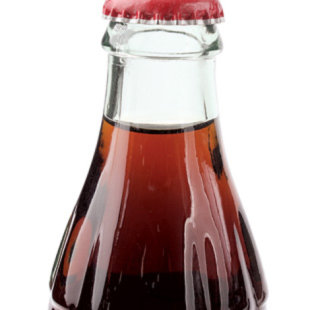By Brierley Wright, M.S., R.D., Nutrition Editor, EatingWell Magazine

Related: What's So Bad About High-Fructose Corn Syrup?
6 Surprising Sources of Sugar
But then I saw this new study-published online recently in the journal Metabolism-that suggests for the first time that there is a (slight) difference in the way the body processes HFCS and sugar.
Why does it matter? Fructose is metabolized by the body differently compared to glucose and other sugars-and thus may pose a greater health risk by affecting your appetite and your heart health.
Related: The Scoop on Splenda, Stevia & More Sugar Substitutes
6 Foods That Sound Healthy But Aren't
In the study, researchers gave 40 men and women one of two drinks on their first visit: 24 ounces of Dr. Pepper sweetened with either HFCS or cane sugar (sucrose). Then they assessed whether the body absorbed more fructose from one sweetener than the other. On their second visit, study participants drank the opposite of what they received on their first visit.
Here's what the researchers found: after participants drank the HFCS-sweetened Dr. Pepper, their fructose blood levels were higher than when they drank the sugar-sweetened Dr. Pepper. But HFCS contains a higher percentage of fructose than sugar does (55 percent fructose compared to 50 percent in sugar)-and when the researchers took that into account the difference was no longer statistically significant.
So what does this mean for your sugar choices? I think it's still too early to draw conclusions. The study authors wrote: "To our knowledge, this is the first study to show that HFCS is more likely to cause acute adverse effects than sucrose." But this other quote from them is interesting food for thought and should be explored through further research: "Although the treatment effects…were small, the effects may increase with continued, chronic exposure to these sweeteners."
Don't Miss: Ditch These 4 Foods to Clean Up Your Diet
Do you avoid high-fructose corn syrup?
By Brierley Wright, M.S., R.D.

Brierley's interest in nutrition and food come together in her position as nutrition editor at EatingWell. Brierley holds a master's degree in Nutrition Communication from the Friedman School of Nutrition Science and Policy at Tufts University. A Registered Dietitian, she completed her undergraduate degree at the University of Vermont.
Related Links from EatingWell:
No comments:
Post a Comment